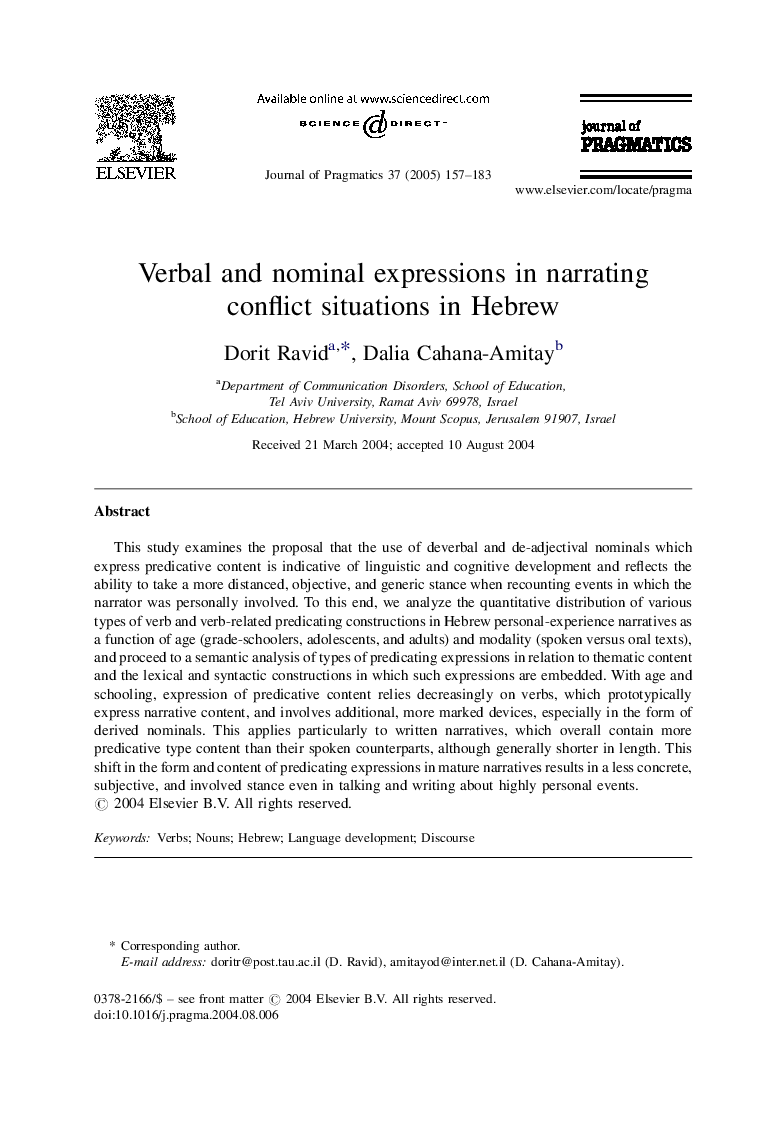| Article ID | Journal | Published Year | Pages | File Type |
|---|---|---|---|---|
| 10460462 | Journal of Pragmatics | 2005 | 27 Pages |
Abstract
This study examines the proposal that the use of deverbal and de-adjectival nominals which express predicative content is indicative of linguistic and cognitive development and reflects the ability to take a more distanced, objective, and generic stance when recounting events in which the narrator was personally involved. To this end, we analyze the quantitative distribution of various types of verb and verb-related predicating constructions in Hebrew personal-experience narratives as a function of age (grade-schoolers, adolescents, and adults) and modality (spoken versus oral texts), and proceed to a semantic analysis of types of predicating expressions in relation to thematic content and the lexical and syntactic constructions in which such expressions are embedded. With age and schooling, expression of predicative content relies decreasingly on verbs, which prototypically express narrative content, and involves additional, more marked devices, especially in the form of derived nominals. This applies particularly to written narratives, which overall contain more predicative type content than their spoken counterparts, although generally shorter in length. This shift in the form and content of predicating expressions in mature narratives results in a less concrete, subjective, and involved stance even in talking and writing about highly personal events.
Related Topics
Social Sciences and Humanities
Arts and Humanities
Language and Linguistics
Authors
Dorit Ravid, Dalia Cahana-Amitay,
